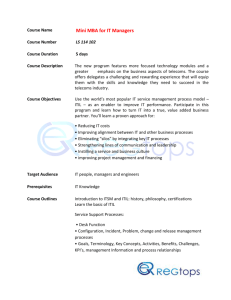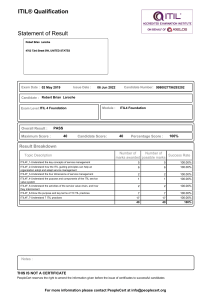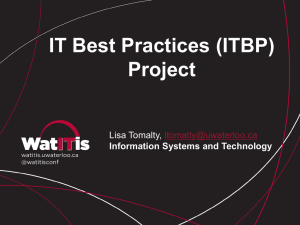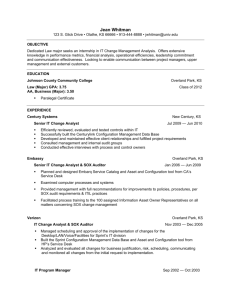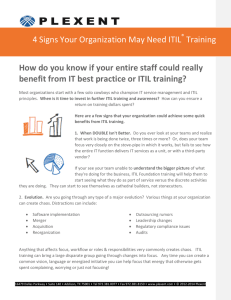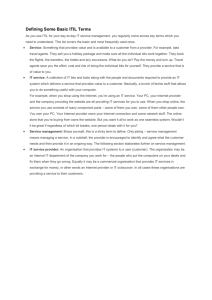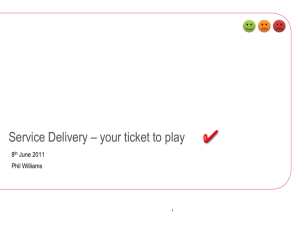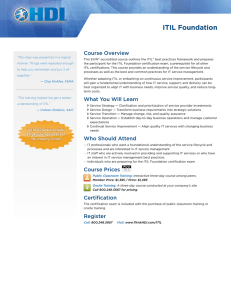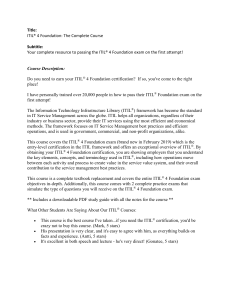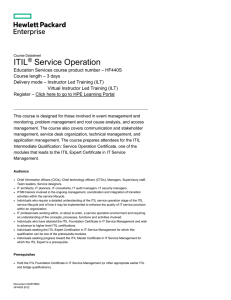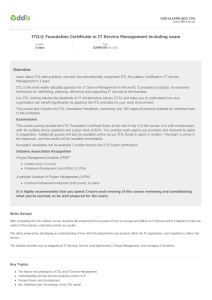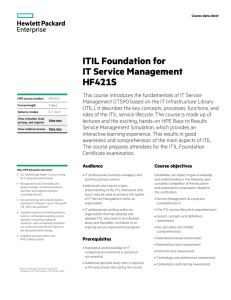FIREFIGHTING AND HEROICS TO PROCESS AND ORGANIZATION
advertisement
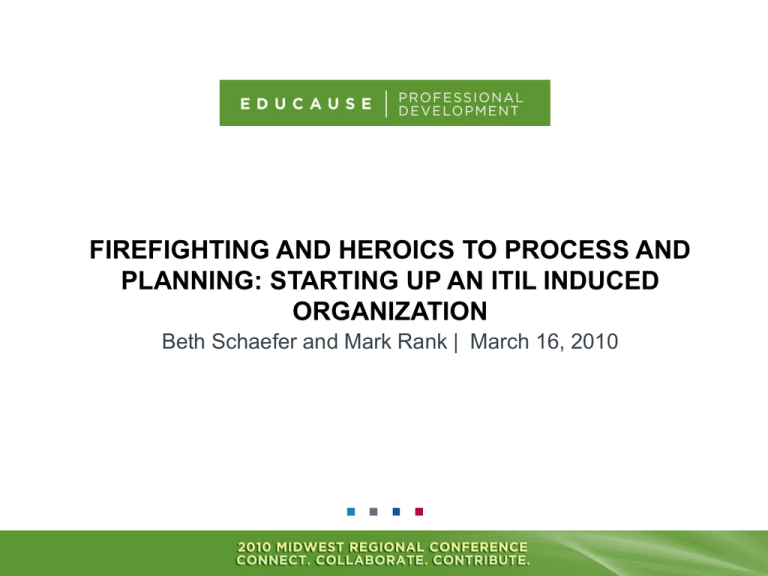
FIREFIGHTING AND HEROICS TO PROCESS AND PLANNING: STARTING UP AN ITIL INDUCED ORGANIZATION Beth Schaefer and Mark Rank | March 16, 2010 UW-MILWAUKEE Enrollment 30,455 Undergraduate 25,239 Masters & Doctoral 5,216 Faculty & Staff 3,756 Central IT staff 125 IT student staff 175 Schools & Colleges 12 Programs: Undergraduate 84 Masters 48 Doctoral 24 TODAY WE WILL BE COVERING Our motivations What are we doing now Where we are going The challenges we’ve faced MOTIVATION We had fires burning… Off hours emergencies Unstable infrastructure New initiatives appearing out of no where We threw up our hands and said “What are we going to do to fix it” DISRUPTIVE OPPORTUNITY At the architecture level we were trying to understand our current state, but we were struggling with a framework And then some staff went to an ITIL presentation by George Spalding A division wide Operations Team was being formed DISRUPTIVE OPPORTUNITY Budgets were getting tight Expected to "Do Less with Less" but to do things with higher quality and effectiveness Needed a framework to link requirements engineering, project mgmt and strategic communication efforts WE HAD PARTS OF THE PICTURE Architecture frameworks Project management best practices Requirements engineering Operational aspects weren’t covered Needed a framework to tie things together THE KICKOFF A proposal was drafted in Feburary 2009 to implement the ITSM/ITIL best practices framework Proposal was circulated among the CIO Leadership Team, Architecture Team and newly created Operational Team WHY ITIL? There was not a systematic choice to use ITIL Local Peers started to implement ITIL ITIL V3 was a “Hot Topic" at the time "As good as anything to start with" “Drank the Kool-Aid” HOW WE ORGANIZED THE EFFORT Played the ITIL "Hot Potato" game with Leadership teams Ended up forming coordination team composed of a few members from the leadership teams Decision to have a “managed organic” process WHERE WE STARTED Identified three items that we were already doing that were ITIL'ish to start the conversation Introduction of the topic at all staff meetings Waves of ITIL online orientation Feedback sessions after the orientation Got the manuals so people could start reading WHAT ARE WE DOING NOW Service Catalog/Service Portfolio First steps at basic portfolio management First steps at service design First steps at change management (Change Advisory Documents) WHERE ARE WE GOING Better basis for gathering metrics Process for new services and retirement of old Gaining better communication within the campus community about our services Framework with project management, requirements gathering and ITIL WHAT HAVE BEEN THE CHALLENGES Managing the amount of change Keeping it in the bounds of what can be accepted Iterating processes without frustrating staff Getting enough people oriented to the terminology, concepts and definitions Giving already overcommitted staff time to follow through on new initiatives WHAT HAVE BEEN THE CHALLENGES Changing the culture "Rewarding fire fighting" to "Rewarding successful service management” Chicken and egg problem of service catalog and portfolio Deciding what should initially be defined Defining service owners LESSONS LEARNED SO FAR Figure out who will coordinate early Introduce the concepts and listen for feedback, especially from any training or orientation Start to use the terminology as soon as possible Have a basic portfolio management process from the start, even if you don’t have a portfolio QUESTIONS TO ASK Why do you want to implement ITIL? What are the goals you are trying to accomplish? Where can you can a quick win for your organization? What are the processes you have already for a base to start with? QUESTIONS beths@uwm.edu rankm@uwm.edu THANK YOU
